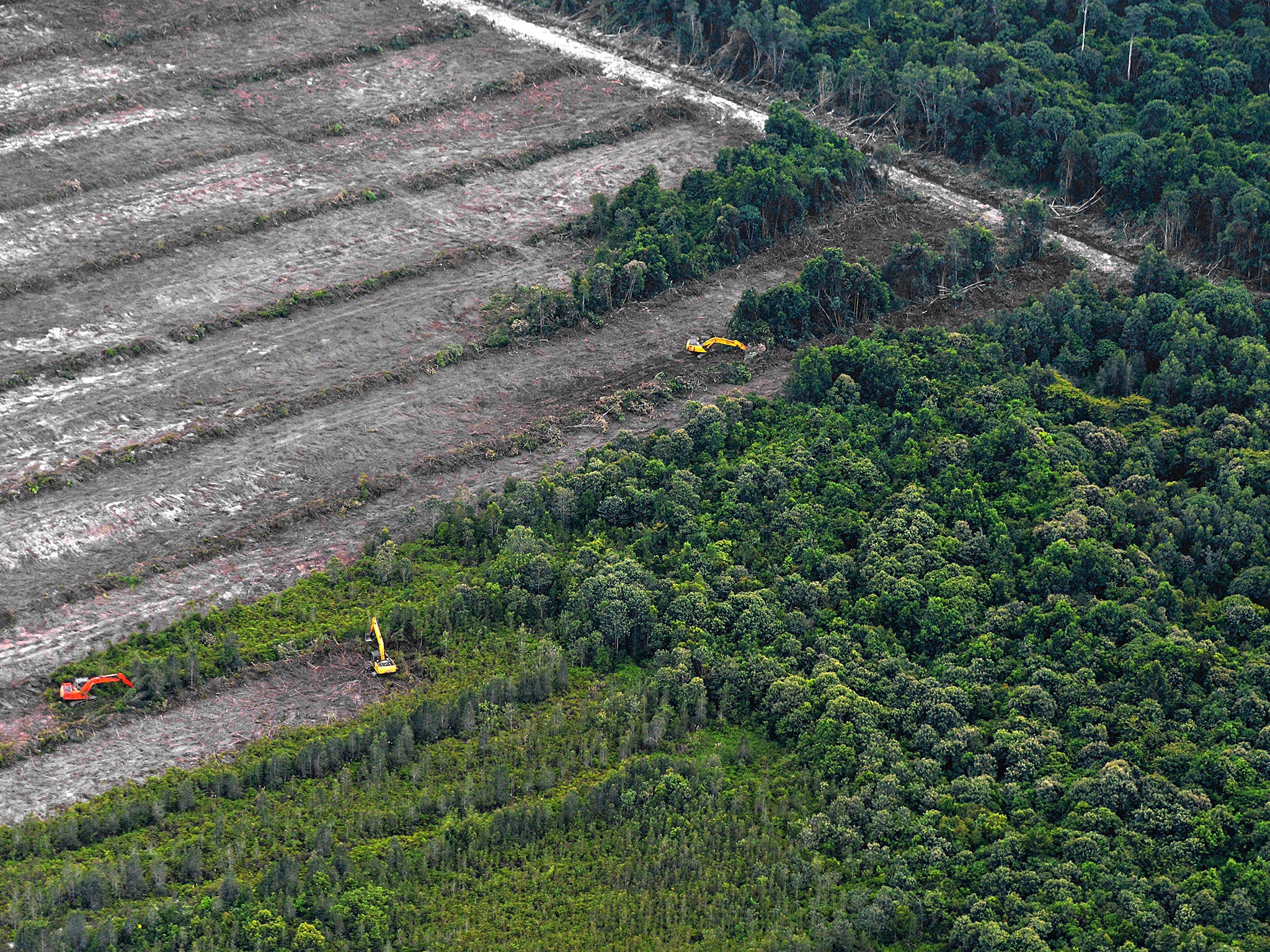The dramatic growth in plant cover will not offset the damage made from deforestation
The extra carbon being stored by this additional vegetation only represents seven per cent of the 60 billion tonnes of carbon that has been emitted into the atmosphere

Your support helps us to tell the story
From reproductive rights to climate change to Big Tech, The Independent is on the ground when the story is developing. Whether it's investigating the financials of Elon Musk's pro-Trump PAC or producing our latest documentary, 'The A Word', which shines a light on the American women fighting for reproductive rights, we know how important it is to parse out the facts from the messaging.
At such a critical moment in US history, we need reporters on the ground. Your donation allows us to keep sending journalists to speak to both sides of the story.
The Independent is trusted by Americans across the entire political spectrum. And unlike many other quality news outlets, we choose not to lock Americans out of our reporting and analysis with paywalls. We believe quality journalism should be available to everyone, paid for by those who can afford it.
Your support makes all the difference.The dramatic growth in plant cover in the past decade gives a huge boost to the battle against global warming. But any celebrations should be muted by this sobering fact: the extra carbon being stored by this additional vegetation, while enormous, only represents seven per cent of the 60 billion tonnes of carbon that has been emitted into the atmosphere over the same period, which will remain there for centuries.
There is no sense, then, in which the increased carbon uptake of our plantlife detracts from the urgent need to step up the fight against climate change by cutting fossil fuel use and protecting woodland.
The need to preserve our diminishing rainforests is particularly acute.
This report may have identified a surprisingly big increase in plant cover, but there is nothing unexpected about the confirmation it provided about tropical deforestation.
The devastation of the rainforests is particularly worrying because these not only act as a major carbon sink – they also provide one of the most “biodiverse” habitats in the world, supporting vast networks of inter-dependent species.
Total plant cover has increased in the past decade, but in many cases the quality of this cover is far lower than the loss of the tropical forests it is helping to offset.
Only about half of the rainforest loss has been offset by growth in coniferous and mixed-leaf forests, with much of the rest of the increase coming from shrubland and savannas.
But as the report states, these kind of carbon sinks are “very sensitive to year-to-year changes in rainfall over savanna regions” – we only need one very dry year for much of the carbon stored in recent years to be released back into the atmosphere.
World leaders will attend a UN climate change conference in Paris in December to agree action to curb the worst effects of global warming. Given the key contribution rainforests make to the planet’s carbon sink and biodiversity their preservation needs to be high on the agenda.
Join our commenting forum
Join thought-provoking conversations, follow other Independent readers and see their replies
Comments